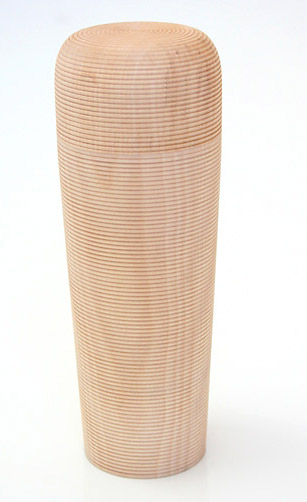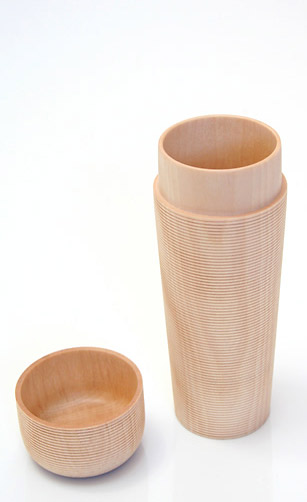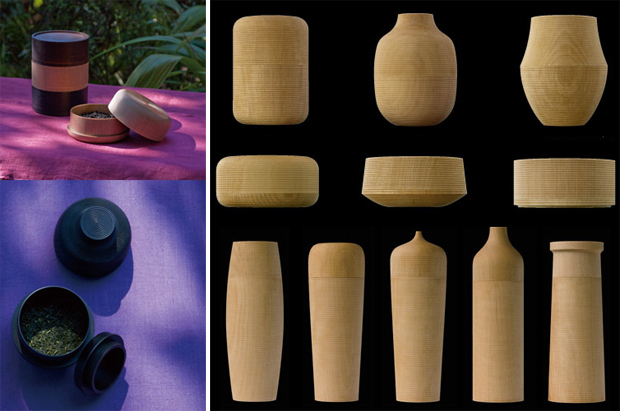Karmi Tea Canister
Stunning simplicity in a container highlighting the beauty of vertically-cut wood



Deceptively simple looking, a single Karmi tea canister can take artisans over a year to complete. Manufacturer Syosen, based in Yamanaka (a region known as much for its traditional lacquerware, as for its natural thermal baths), crafts their products following a half-century-old lathing technique. Carving a perfectly-rounded cup or bowl involves precisely thinning the wood, followed by several rounds of lacquering (clear in this case) and extended drying times to ensure a bone-dry core. The technique leaves the natural beauty of the vertically-cut wood grain exposed, creating a muddled elongated effect.
The extensive Yamanaka process came to rise during the Edo period along with the art of the tea ceremony thanks to the area’s bohemian inhabitants (including the father of haiku Basho Matsuo), drawn there by the hot springs. The Syosen canister even takes its name from the Basho principle of haiku that mandates “only local.”

All this heritage makes for an heirloom-quality vessel representing some of the best principles of Japanese product design. Carved with perfectly-spaced, finely-engraved rings, the thermos-like container will stand up to everyday use while preserving the contents within. The result of the intensive processes and highly-engineered lid, interior air quality keeps loose tea and spices (or anything needing a fresh and dry space) at the ready.
The full range of Karmi tea canisters shown above can be seen at the Syosen website. Family-run “eco boutique” Beklina sells the light wood edition for $220.












